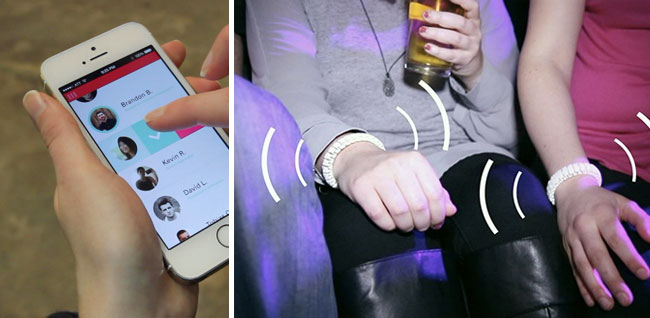Blog Articles
Wednesday, March 30th, 2016
 April is Alcohol Awareness month, and with it we're examining the many ways in which health informatics is changing the way we look at alcohol consumption.
April is Alcohol Awareness month, and with it we're examining the many ways in which health informatics is changing the way we look at alcohol consumption.
Drinking too much alcohol can be deadly, increasing the risk of liver disease and some types of cancer1, and alcoholism is an all-too prevalent affliction. Properly understanding a patient's alcohol intake can help physicians provide more effective overall care.
The role of informatics in alcohol consumption is still new ground; however, there are several ways in which the topic is being approached.
Recording Alcohol Use in EHR Databases
Physicians commonly ask patients about their alcohol intake, and their answers can have deep implications. Electronic Health Record (EHR) systems provide an avenue through which details about alcohol use can be documented and saved. Using an EHR allows a physician to track trends in alcohol consumption over time and refine recommendations based on those data.
However, there is some discussion regarding the overall potential of EHR use in regards to alcohol consumption. A study conducted by informaticians at the University of Vermont Center for Clinical and Translational Science and the University of Massachusetts Medical School noted that physicians often chose to document this information through free-text2, rather than making use of the structured format. While using free-text allows for physicians to record more specific, detailed information, it makes it more difficult to track the data over time. As a result, it is harder to analyze trends, and the ability to use the data is effectively limited.
Despite this possible downfall, it is likely that EHR systems will continue to play a role in our understanding of alcohol use.
Wearables and Mobile Devices
While many wearables are concerned with counting steps, some have taken a different approach. There are already a number of breathalyzer devices that connect with smartphones, and transdermal ethanol detection, a method that uses sweat to determine alcohol levels, represents an even more promising approach to tracking alcohol use.
Imagine a physician who can easily access data regarding their patient's sobriety, recorded in real-time. Or a patient who is alerted when they are entering dangerous levels of alcohol usage.
While there are currently no commercially available wearables with these capabilities, there have been a number of prototypes that appear promising3. The criminal justice system has already implemented similar technology to help curb repeat incidents of driving-while-intoxicated (DWI) by alcohol4.
Using Genomics to Understand Alcohol Dependence
Scientists have long known that significant alcohol consumption changes the human body, but with modern work in genomics, we can study these changes in a new light. From digital databases, in-house analyses of genomic regions, to web-based annotation and identification of functional DNA sequences5, we have entered a new era of exploring multi-gene and environmental causes of diseases like alcoholism.
In addition, statistical investigations into gene regulatory networks and phenotypic constraints can lead to a greater understanding of what drives some people to drink unhealthy amounts of alcohol. This information will help physicians create and recommend more personalized treatments and prevention strategies6.
Repurposing Drugs Through Big Data
As the sharing of patient data and genomics becomes a more widespread practice, researchers will be able to identify patterns more thoroughly than before. Among the products of this new method is the quickening pace of repurposing drugs. Alcohol dependence is among the diagnoses that may be impacted by drug repurposing.
As the process for repurposing an FDA-approved drug is much swifter and more cost effective than creating a new drug altogether, this is a process that benefits everyone, from researchers and pharmaceutical developers to patients. Already, several FDA-approved drugs—including medications currently used to treat diabetes and elevated blood lipids7, high blood pressure8, parasitic infections9, Parkinson’s disease and depression10--are being researched as promising medications for patients with alcohol dependence.
1 http://healthfinder.gov/NHO/AprilToolkit.aspx
2 https://pubmed.ncbi.nlm.nih.gov/25024757-an-analysis-of-free-text-alcohol-use-documentation-in-the-electronic-health-record-early-findings-and-implications/
3 http://postscapes.com/social-safety-wearable-vive
4 http://trid.trb.org/view.aspx?id=1212685
5 http://pubs.niaaa.nih.gov/publications/arh26-3/181-192.htm
6 https://pubmed.ncbi.nlm.nih.gov/25896098-applying-the-new-genomics-to-alcohol-dependence/
7 https://pubmed.ncbi.nlm.nih.gov/25516156-peroxisome-proliferator-activated-receptors-and-are-linked-with-alcohol-consumption-in-mice-and- withdrawal-and-dependence-in-humans/
8 https://dionysus.psych.wisc.edu/WebCMS/drug-repurposing.htm
9 https://news.usc.edu/64461/potential-drug-treatment-for-alcohol-abuse-advances-to-human-trials/
10http://www.asam.org/magazine/read/article/2015/12/13/repurposing-medications-to-treat-addiction